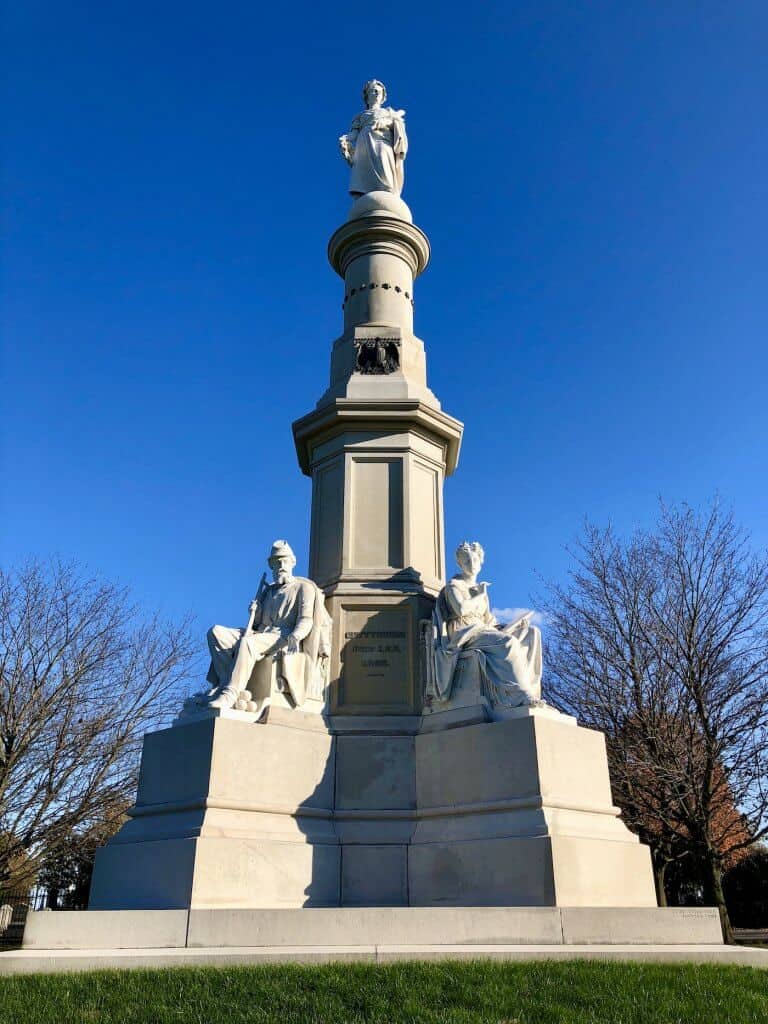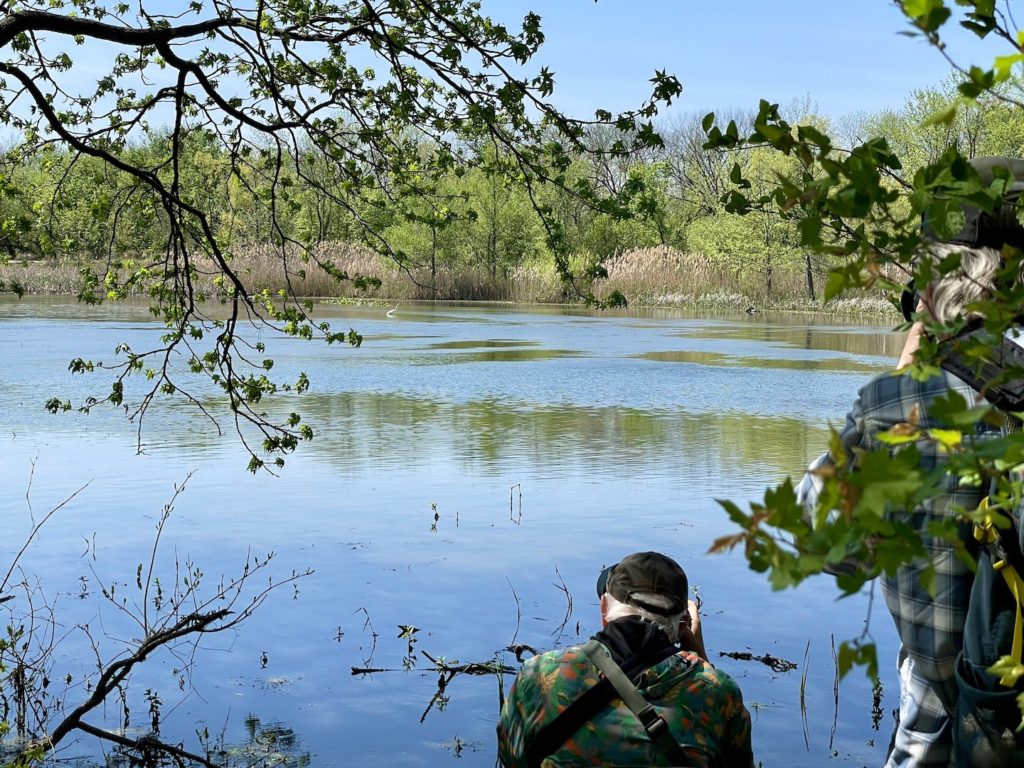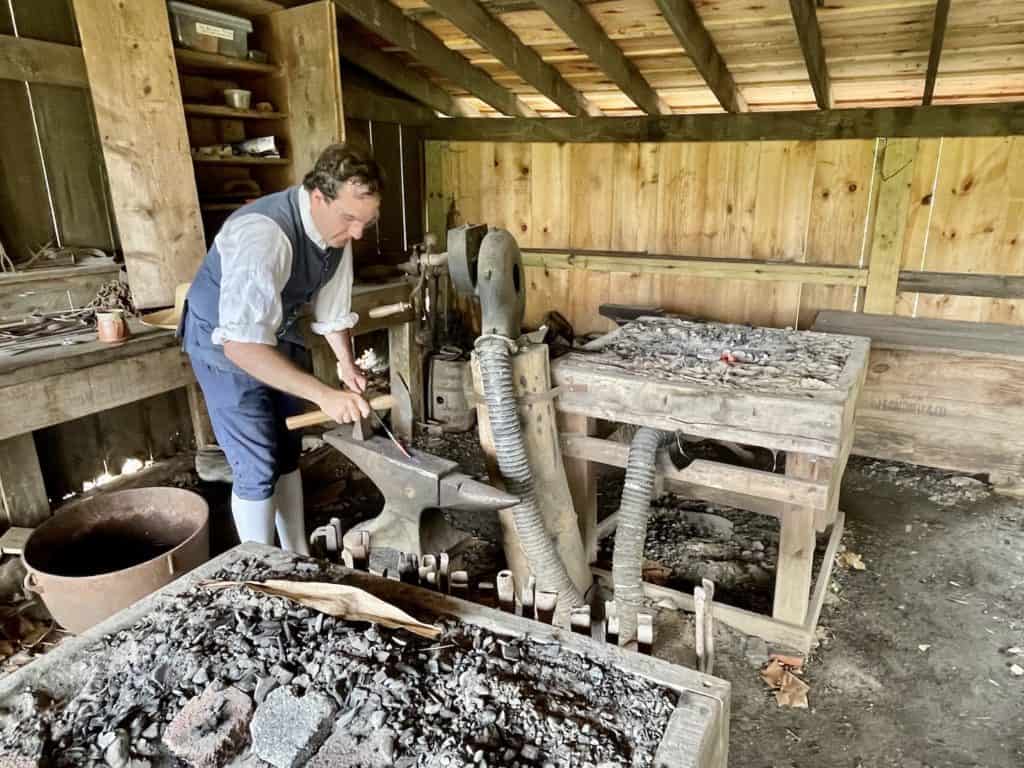I find historic battlefields and cemeteries sobering to the point, at times, of profound sadness. Humanity’s inability to solve disagreements, overcome pride, and control greed and envy is on stark display at these sites. For me, Gettysburg is a prime example. To help plan your visit, read my Visitor’s Guide to Gettysburg, PA.
NOTE: This reflection is written by my husband and trusty travel partner, Pop.
Imagine society’s circumstances so grave that average citizens would be willing to leave their families to stand shoulder to shoulder with others forming a line hundreds of yards wide opposite another line of men dressed in different uniforms separated by a large field. The signal is given and this line, six or more deep, begins to march slowly forward toward the opposing line. Soon, cannon-fired shells of all sorts, including hideous grapeshot, begin to fly through the air and toward the marching line — sometimes hitting close enough to kill or wound a few men. Then the next command is given and the line begins to trot. More cannon fire and more casualties.
Then comes the order to charge and the line starts running full speed toward the other manned line. Suddenly, that opposing line, also hundreds of yards wide and six or more deep, fires their rifles in unison directly into the charging line. A unified moan is heard as many on the first row of the line fall dead or wounded. The oncoming line then fires back and the horrific battle, which often includes hand-to-hand fighting, is fully engaged. Sometimes the oncoming line overwhelms the stationary line, while other times the stationary line beats back the oncoming line. This is what a great deal of the Battles of Gettysburg was like — such as Pickett’s Charge.

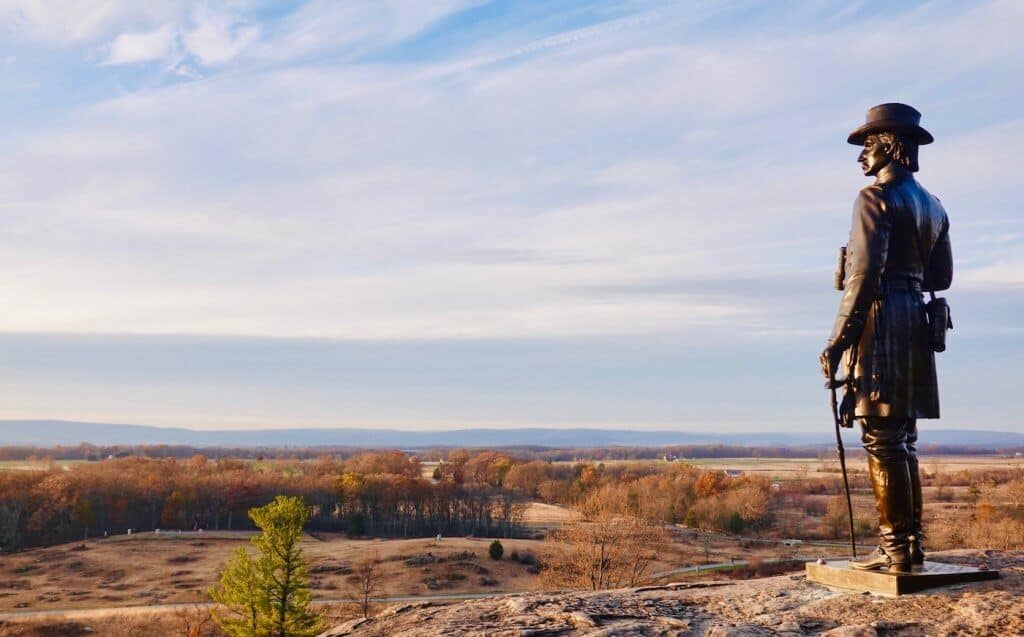
Then there was the 20th Maine commanded by Colonel Joshua Chamberlain, a professor of modern languages at Maine’s Bowdoin College. On the second day of the Gettysburg battle (July 2, 1863), Colonel Chamberlain was told to defend his position at all costs … till the last man! Why? His 20th Maine held the far left flank of the entire Union army, which was located on the northwest side of the large rocky hill known as Little Round Top. If the 20th Maine failed to hold its position, the Confederates would have been able to get behind the Union army, thus giving them a tremendous battlefield advantage.
Time and again, the Confederates attacked up the rocky hill, each time thrown back by the 20th Maine. With many casualties and almost out of ammunition, Colonel Chamberlain decided that his only chance to prevail was to order a fixed bayonet charge down the hill. WOW! The 20th Maine charged down the rocky hill, surprising the Confederates, capturing 101, and successfully saving the left flank of the Union army.
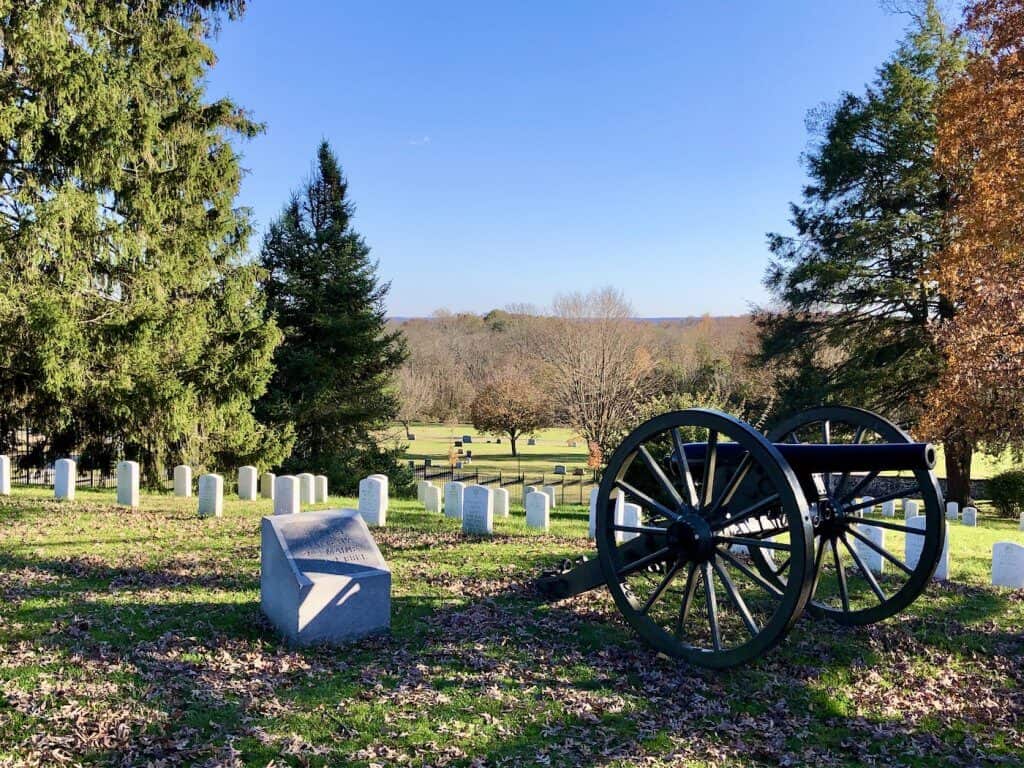
At Gettysburg, casualties totaled 51,112:
- 7,058 dead;
- 33,264 wounded;
- 10,790 missing.
Whether it’s Gettysburg or the beaches of Normandy, you can’t help but ask yourself, “Would I have been able to do that?” As a guy in his early sixties, getting up close to special places like Gettysburg and Normandy has caused me to abandon the Hollywood versions of bravery and heroism. I have no words to describe what these men did, the sacrifices they and their families made for what they hoped would become a better world for their children and grandchildren. All I can say is that because of them the world did become a better place. Thank you.
In closing, it’s worth revisiting Abraham Lincoln’s Gettysburg Address which was presented at the dedication of the Gettysburg National Cemetery on November 19, 1863 (a little over five months after the battle):
“Fourscore and seven years ago our fathers brought forth, on this continent, a new nation, conceived in liberty, and dedicated to the proposition that all men are created equal. Now we are engaged in a great civil war, testing whether that nation, or any nation so conceived, and so dedicated, can long endure. We are met on a great battlefield of that war. We have come to dedicate a portion of that field, as a final resting place for those who here gave their lives, so that that nation might live. It is altogether fitting and proper that we should do this. But, in a larger sense, we cannot dedicate, we cannot consecrate—we cannot hallow—this ground. The brave men, living and dead, who struggled here, have consecrated it far above our poor power to add or detract. The world will little note, nor long remember what we say here, but it can never forget what they did here. It is for us the living, rather, to be dedicated here to the unfinished work which they who fought here have thus far so nobly advanced. It is rather for us to be here dedicated to the great task remaining before us—that from these honored dead we take increased devotion to that cause for which they here gave the last full measure of devotion—that we here highly resolve that these dead shall not have died in vain—that this nation, under God, shall have a new birth of freedom, and that government of the people, by the people, for the people, shall not perish from the earth.”
